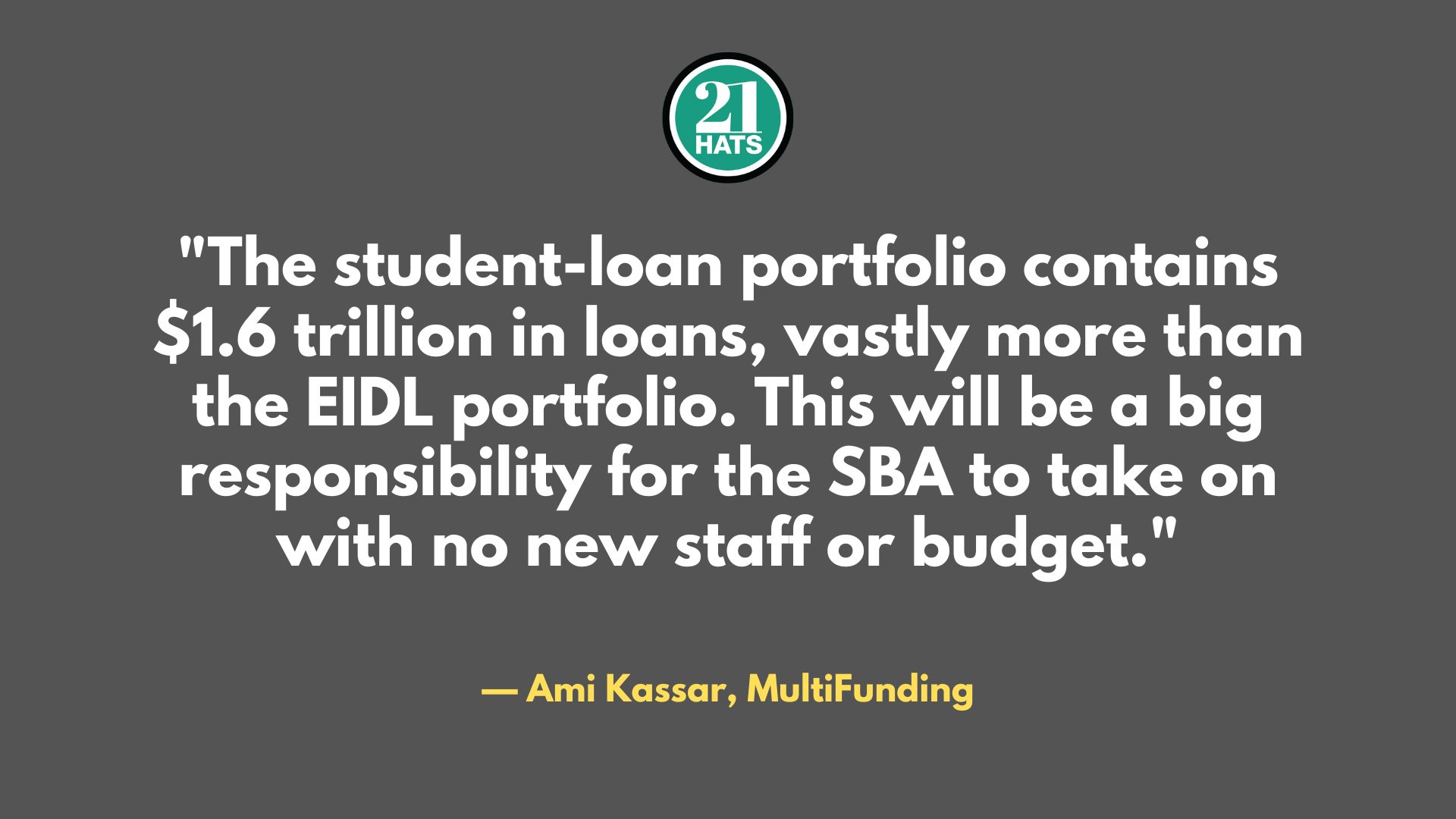Last Week, A Lot Changed at the SBA

With new responsibilities but far fewer people, the agency faces an uncertain future.
By Ami Kassar
The changes at the Small Business Administration came quickly last week. On Friday, Kelly Loeffler, the new SBA administrator, announced that the agency’s staff would be reduced 43 percent to bring it back to pre-pandemic levels. On the same day, President Trump announced that the SBA would take over responsibility for the sprawling student-loan portfolio previously managed by the Department of Education.
This news is a lot to digest, so let’s break it down and begin with comparing how the SBA looks today versus how it looked before the pandemic. Among many other initiatives it undertook during the pandemic, the SBA—in both the first Trump and Biden administrations—issued about 4 million Economic Injury Disaster Loans with a face value of more than $600 billion. Unlike traditional SBA loans made by a private lender and guaranteed by the government, these EIDL loans were direct loans between the government and the lender.
The SBA needed a lot of people to process these loans. And I am sure that many of the people hired for these jobs are no longer necessary. However, we should not forget that several million of these loans still need to be serviced and managed. This effort requires people and technology. It seems unlikely that this portfolio can be handled by pre-pandemic staffing levels. The SBA has a responsibility to both the borrowers and the taxpayers to manage the portfolio, which will take several decades to unwind.
On the same day the reduction in force was announced at the SBA, President Trump announced that management of the student loan portfolio would be transferred from the Department of Education to the SBA. In his comments, he referred to this portfolio as representing tens of thousands of loans. In fact, the portfolio contains $1.6 trillion in loans, which is vastly more than the EIDL portfolio. This will be a big responsibility for the SBA to take on, especially with no new staff or budget.
Life, business, government, and politics do not move in a straight line. Change is inevitable. I think it’s fair to say that many employees on the SBA payroll who were brought in during the pandemic are no longer needed. And I can also see a legitimate argument that the government should manage its loan portfolios in one place.
That said, we should be cognizant of the challenge and expense required to manage such large lending programs. We should be adamant that the SBA remains focused on its core mission of helping America’s small businesses thrive and prosper. Like so many changes we are encountering, time will tell how this all plays out.
Ami Kassar is CEO of MultiFunding.